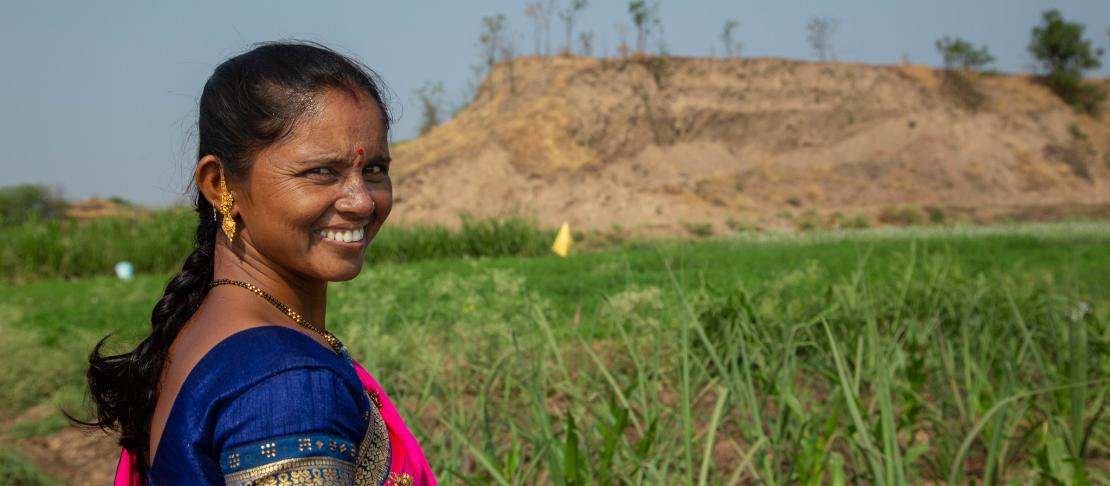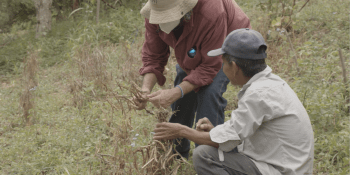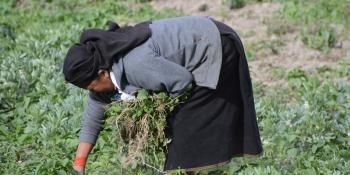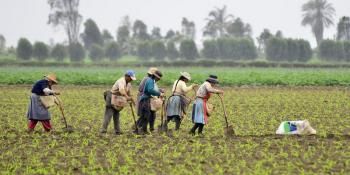How a culture of open data is helping more people take up climate-smart agriculture

HOW A NEW DATA PLATFORM AIMS TO RAISE THE BAR FOR KNOWLEDGE PRODUCTION AND SUPPORT CLIMATE ACTION
The latest climate change report from the Intergovernmental Panel on Climate Change (IPCC) spells out in crystal clear terms the climate crisis we face.
The report rightly highlights how knowledge and information can help communities around the world step up to climate challenge through adaptation and mitigation with a better understanding of risk.
Agriculture and food systems are at the heart of the climate crisis. More than a third of Greenhouse Gas Emissions are produced by them, and half a billion smallholder farmers are on the frontline of climate change.
To address this crisis, we need to foster more climate-smart agriculture. Knowledge generation - and ensuring such knowledge is used effectively - remains a key part of the puzzle.
The CGIAR Research Program on Climate Change, Agriculture and Food Security (CCAFS) has produced some of the world’s leading science on the interconnected challenges of climate change and food security. Producing knowledge of the highest peer-reviewed standards is a priority for the CCAFS team.
But often, that is not enough. Accessibility, applicability and usability are key values that CCAFS attaches to the knowledge we produce, reflected in our Data Management Strategy.
CCAFS assesses its own outputs against rigorous standards of findability, accessibility, interoperability, and reusability. We call these the FAIR principles - internationally recognized metrics to indicate the usability of data.
CCAFS not only aims to get information out to the global community. We want that information to be readily deployable, to help communities tackle food security and climate change.
That’s why our team launched ‘CCAFS Knowledge by the Numbers’. It's an interactive platform that allows our partners and stakeholders to analyze the knowledge we produce, and inspire others to take up the FAIR principles in practice.
This dashboard allows you to explore statistics on CCAFS knowledge and data collected over the past three years. Click full-screen mode and then the question mark to find out how to use it.
Our ambition is to raise the bar for knowledge production across institutions that work to address the climate crisis and improve global food security.
Looking at the data from the last three years, we see some striking trends:
- Despite the COVID-19 pandemic, CCAFS increased the amount of produced deliverables by 16.5% through 2020;
- Not only did we produce more, but we also dramatically increased the percentage of high-scoring deliverables - from 66.3% in 2018 to 82.4% in 2020;
- We now produce more than half our content is Open Access, more than ever before - from 47% in 2018 to 55% in 2020;
- The CCAFS East Africa team - in close collaboration with all CCAFS flagships - have been particularly prolific as they lay the foundations for the Accelerating Impacts of CGIAR Climate Research for Africa (AICCRA) project. Nearly half of all CCAFS knowledge was produced about the region.
- A journal article in Nature - Innovation can accelerate the transition towards a sustainable food system - garnered the highest Altmetrics score for the CCAFS team.
By demonstrating the benefits of actively applying FAIR principles to CCAFS’ own knowledge - by generating timely, relevant, usable and transparent information about our own research - we hope to inspire more partners to adopt the principles in their efforts too.
Research about climate-smart agriculture should be more than a box-ticking exercise. We have to better understand how the knowledge that’s produced in the research ecosystem is applied and used to solve challenges in what works in addressing the climate crisis.
Wiebe Smit is Project Administrator for CCAFS
Margarita Ramírez is the Information Officer for the Alliance of Bioversity International and CIAT
Rhys Bucknall-Williams is the Global Communications and Knowledge Manager for CCAFS
Héctor Tobón is the Knowledge and Data Sharing Coordinator for CCAFS


